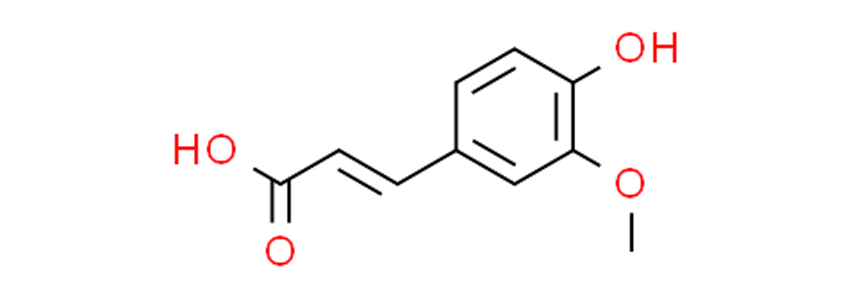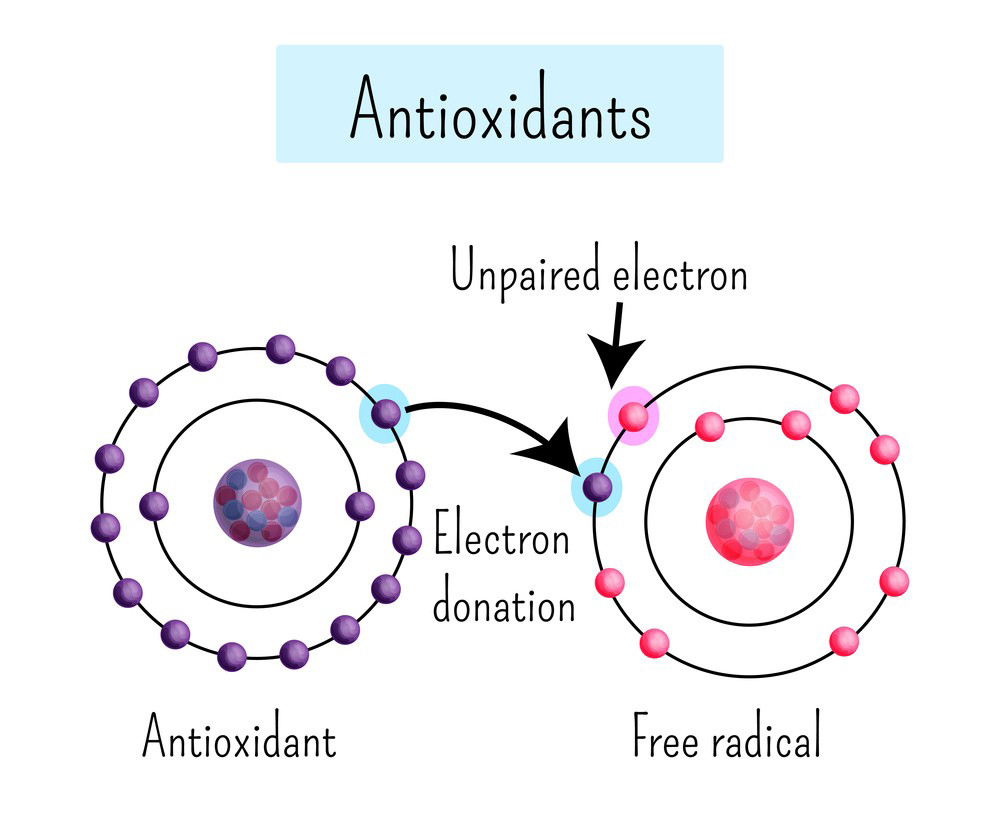Ferulic acid is a naturally occurring compound found in various plants, particularly in fruits, vegetables, grains, and seeds. It belongs to a class of organic compounds called hydroxycinnamic acids, which are a type of phenolic compound known for their antioxidant and plant protective properties.
Ferulic acid is commonly found in foods like coffee, rice bran, whole grains, oats, apples, oranges, and certain vegetables such as spinach and artichokes. It’s known for its potential health benefits due to its antioxidant and anti-inflammatory properties. Antioxidants help protect cells from damage caused by harmful molecules called free radicals, which can contribute to various diseases and aging.
In addition to its role as an antioxidant, ferulic acid has gained attention in the skincare and cosmetic industries. It’s often included in topical skincare products due to its potential to provide protection against the harmful effects of UV radiation, reduce oxidative stress, and promote collagen production, which can help improve skin health and appearance.

Ferulic acid can also play a role in the stabilization of other antioxidants, such as vitamin C and vitamin E, when used in combination with them. This synergistic effect can enhance the overall antioxidant efficacy of these ingredients.
It’s worth noting that while ferulic acid is generally considered safe when consumed in dietary amounts from foods, its concentration and potential effects might differ when used in concentrated forms in skincare products or supplements. As with any compound, it’s advisable to consult with a healthcare professional before using supplements or making significant changes to your skincare routine.
How to use Ferulic Acid?
Ferulic acid is a naturally occurring compound found in various plant sources, such as rice bran, oats, and certain fruits and vegetables. It’s known for its antioxidant and potential skin-benefiting properties. Here’s how you can use ferulic acid:
Skincare Products: Ferulic acid is often used in skincare products due to its antioxidant properties that can help protect the skin from environmental damage and UV radiation. Look for serums, moisturizers, and creams that contain ferulic acid as an ingredient.
Combination with Vitamin C and E: Ferulic acid is known to enhance the stability and effectiveness of vitamin C (ascorbic acid) and vitamin E (tocopherol). When used together, these ingredients can provide powerful antioxidant protection for the skin. Look for products that combine ferulic acid with vitamin C and/or vitamin E for maximum benefits.
Anti-Aging: The antioxidant properties of ferulic acid may help reduce the appearance of fine lines and wrinkles and improve overall skin texture. It can also contribute to a more youthful and radiant complexion.
Sun Protection: While ferulic acid itself does not replace the need for sunscreen, it can provide an additional layer of protection against UV-induced skin damage when used in combination with sunscreen.
Morning Routine: If you’re using a ferulic acid serum, it’s often recommended to apply it in the morning after cleansing and toning, but before applying other serums, moisturizers, or sunscreen. This can help shield your skin from environmental stressors throughout the day.
Patch Test: Before incorporating any new skincare product into your routine, including those containing ferulic acid, it’s a good idea to perform a patch test. Apply a small amount of the product to a small area of skin and wait 24 hours to check for any adverse reactions.

Follow Instructions: Always follow the instructions provided by the manufacturer on the product packaging. Some products may have specific recommendations for usage frequency and application techniques.
Consult a Professional: If you have sensitive skin, specific skin concerns, or if you’re unsure about how to best incorporate ferulic acid into your skincare routine, it’s a good idea to consult with a dermatologist or skincare professional.
Remember that everyone’s skin is different, so it’s important to pay attention to how your skin responds to ferulic acid and adjust your usage accordingly. If you experience any irritation or adverse reactions, discontinue use and seek advice from a skincare professional.
